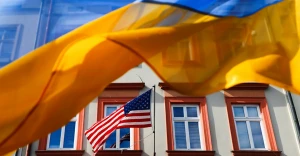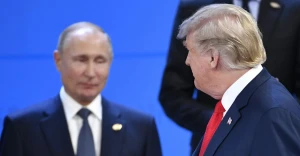
Escalating threats rise on Zaporizhzhia front, military expert warns
Vladyslav Seleznyov, a military expert and former spokesperson for the General Staff of Ukraine, noted that on the Zaporizhzhia front, Russia's 90,000-strong "Dnepr" military grouping benefits from stable, uninterrupted logistics, including rail supply along the northern coast of the Sea of Azov
He shared the information on Espreso TV.
"At the moment, it can be stated that the enemy is only looking for weak points in our defense, conducting tactical-level offensive operations, but despite this, the trends are quite concerning. The reason for this trend is several factors. The first factor is the 90,000-strong Russian military grouping called 'Dnepr,' which is commanded by Colonel General Mikhail Teplinsky. He is also the commander of the Russian Airborne Forces and, by the way, a fairly competent Russian general," noted the military expert.
He added that while these resources are insufficient for a full-scale attack or occupation of Zaporizhzhia, they are capable of causing significant problems for Ukraine's forces in this direction.
"The second factor is the steady, uninterrupted logistics for this Russian military grouping. This logistics is ensured by the railway lines running along the northern coast of the Sea of Azov. And the key point is that the Volnovakha railway station has recently been fully secured, and our artillery is no longer able to effectively target it in order to prevent the Russians from maintaining steady rail connections. We lost control of Vuhledar, which means our field artillery cannot reach those areas. Another important factor is the resource capabilities of the Russian army. At the beginning of October, we expected their potential to be depleted, but that did not happen. For now, we can confirm that combat activity in the southern part of Zaporizhzhia region has significantly intensified recently," summarized Vladyslav Seleznyov.
- On November 24, 217 combat clashes were recorded on the Russian-Ukrainian front line. Russian troops focused their attacks primarily on the Kurakhove sector.
- News











































